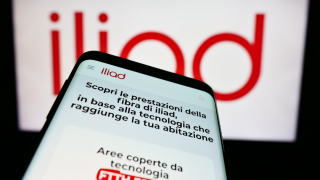The sale gets Amsterdam-registered Veon out of a big headache that has afflicted it since Russia invaded Ukraine in February: the Russian operation, VimpelCom, represented 52% of the group’s business in 2021.
The buyout team is led by VimpelCom, CEO Aleksander Torbakhov (pictured), a banker who returned to the group in April 2020. A decade before, Torbakhov had been general director of VimpelCom, before he left to become deputy chairman and CEO of Sberbank, one of the biggest savings banks in Russia.
Torbakhov said on his return in 2020: “Beeline is one of Russia’s strongest brands and I look forward to leading the company and continuing the operational and financial transformation that began several months ago. The coronavirus pandemic has again highlighted the importance of connectivity and digital services for society and I’m committed to placing customers at the centre of Beeline’s future strategy.”
Veon CEO Kaan Terzioğlu announced VimpelCom was up for sale only three weeks ago, when he told Capacity the process would take “one to two quarters”. He said: “VimpelCom should be owned by Russian shareholders. We are in the middle of a process.”
Terzioğlu said then that Veon “will comply with international laws and regulations” in selling VimpelCom, as well as Russian laws. That complicates how Veon can get paid for the sale.
The business in Kazakhstan, currently part of the Russian subsidiary, will be transferred to the Veon group as part of the deal, something that was not clearly spelled out in the announcement, but was later clarified to Capacity.
As part of the transaction, ownership of Veon’s Kazakhstan operations will be transferred to its main Amsterdam holding company “and certain inter-company loans will be extinguished”, said Veon. “This will ensure that Veon will continue to consolidate its Kazakhstan operations.”
Both VimpelCom in Russia and Kar-Tel, the local licence holder in Kazakhstan, operate under the Beeline brand. Other units in Veon, Kyrgyzstan and Uzbekistan, also use the Beeline name: current plans are for them to stay in the Veon group, along with Kazakhstan.
Terzioğlu said of the deal: “After considering numerous options, I am confident that the agreed sale of Veon’s Russian operations to the VimpelCom management team represents an optimal solution for Veon, its Russian operations and the stakeholders of both companies, including customers, shareholders and creditors, as well as employees both in and outside of Russia.”
The $2.1 billion price seems to represent a good deal for Veon, whose market cap on the Euronext exchange in Amsterdam is €976.7 million. On the Nasdaq in New York it is $1.02 billion, very slightly higher. But a year ago, before the war, Veon was worth around $4 billion on Nasdaq, four times what it is worth today. That is almost certainly is a more realistic value of the group before Russia started the war.
Terzioğlu said: “This transaction will be equity accretive, result in significant deleveraging of Veon’s balance sheet and will enhance Veon’s credit profile.”
Veon said it was committed to ensuring the transaction is seamless for staff and customers in Russia, with no disruption to the services currently provided.
The target completion date for the transaction is on or before 1 June 2023, with options on both sides for extensions in case any required regulatory licence has not yet been received.
The Russian business is being acquired through a special purpose acquisition vehicle, Kopernik-Invest 3, that is 100% indirectly owned by the members of VimpelCom senior management which are participating in the transaction.






